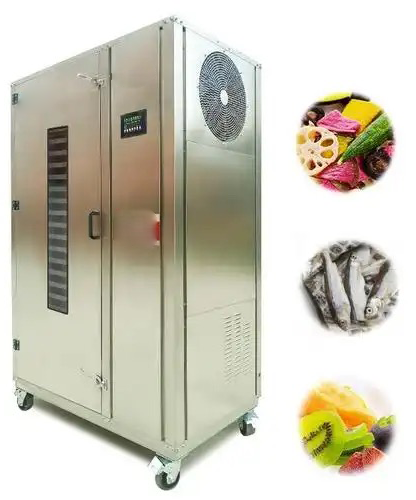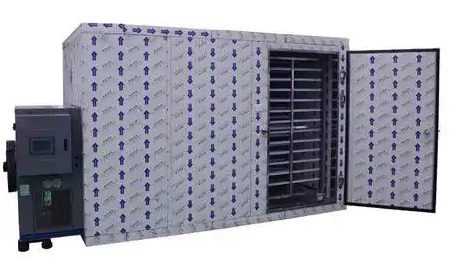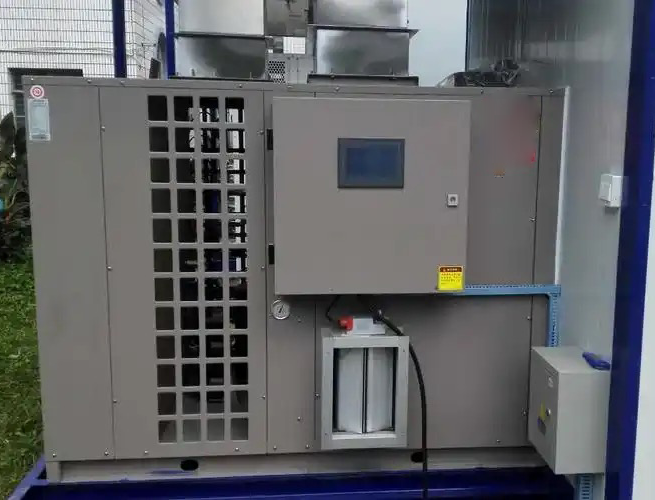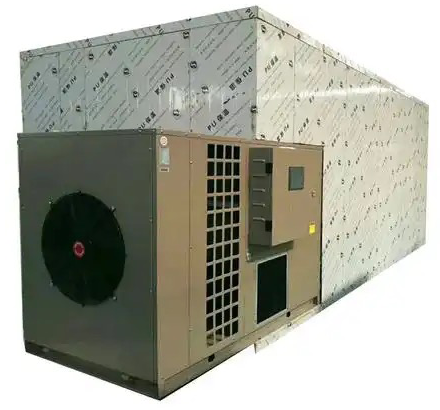
Content Menu
● Understanding Food Drying
>> Types of Food Dryers
● Key Considerations When Choosing a Food Dryer
>> 1. Energy Efficiency
>> 2. Drying Temperature
>> 3. Moisture Control
>> 4. Product Type
>> 5. Initial Investment vs. Long-Term Savings
>> 6. Space and Installation Requirements
>> 7. Maintenance and Durability
>> 8. Production Capacity
>> 9. Environmental Impact
>> 10. Regulatory Compliance
● Conclusion
● Frequently Asked Questions
>> 1. What is the main advantage of heat pump dryers?
>> 2. Can vented dryers be used for all types of food?
>> 3. How do I determine the right dryer for my business?
>> 4. What are the maintenance requirements for heat pump dryers?
>> 5. Are heat pump dryers more expensive than vented dryers?
When it comes to food drying, the choice of equipment can significantly impact the quality, efficiency, and cost-effectiveness of the drying process. As a manufacturer of food drying machines in China, we provide OEM services to international brands, wholesalers, and producers. In this article, we will explore the key considerations when choosing between heat pump and vented dryers specifically for food drying applications.

Understanding Food Drying
Food drying is a preservation method that removes moisture from food, inhibiting the growth of bacteria, yeasts, and molds. This process not only extends the shelf life of food but also concentrates flavors and nutrients. The choice of drying technology plays a crucial role in achieving optimal results.
Types of Food Dryers
1. Heat Pump Dryers: These dryers use a heat pump system to transfer heat from the environment to the drying chamber. They operate at lower temperatures, making them suitable for delicate foods that require gentle drying.
2. Vented Dryers: Vented dryers expel hot, moist air outside, drawing in fresh air to replace it. This method is typically faster but can lead to higher energy consumption and may not be suitable for all types of food.
Key Considerations When Choosing a Food Dryer
1. Energy Efficiency
Energy efficiency is a critical factor in the operational cost of food drying. Heat pump dryers are known for their energy efficiency, using significantly less energy compared to vented dryers. This is particularly important for businesses looking to minimize operational costs. The lower energy consumption of heat pump dryers can lead to substantial savings over time, making them a more sustainable choice for long-term operations.
2. Drying Temperature
The drying temperature affects the quality of the final product. Heat pump dryers operate at lower temperatures, which helps preserve the nutritional value and flavor of the food. Vented dryers, while faster, can expose food to higher temperatures, potentially degrading quality. For example, fruits and vegetables dried at lower temperatures retain more vitamins and minerals, making heat pump dryers a preferred choice for health-conscious producers.
3. Moisture Control
Effective moisture control is essential for preventing spoilage. Heat pump dryers recycle moisture within the system, allowing for better humidity management. This closed-loop system helps maintain consistent drying conditions, which is crucial for achieving uniform results. Vented dryers, on the other hand, expel moisture, which can lead to uneven drying if not properly managed. This inconsistency can result in some products being over-dried while others remain moist, affecting overall quality.
4. Product Type
Different food products have varying drying requirements. For instance, fruits and vegetables may benefit from the gentle drying process of heat pump dryers, while grains and nuts may be suitable for vented dryers. Understanding the specific needs of your products is crucial in making the right choice. For example, herbs and spices often require low-temperature drying to preserve their essential oils, making heat pump dryers an ideal option.

5. Initial Investment vs. Long-Term Savings
While heat pump dryers may have a higher initial cost, their energy efficiency can lead to significant savings over time. Vented dryers may be less expensive upfront but can incur higher energy costs in the long run. It’s essential to evaluate the total cost of ownership when making a decision. Additionally, consider the potential for increased production capacity and product quality, which can further enhance profitability.
6. Space and Installation Requirements
Consider the space available for installation. Heat pump dryers often require more space due to their design and the need for proper ventilation. Vented dryers may be easier to install in smaller spaces but require an external venting system. Assessing your facility layout and available space can help determine which dryer type will fit best in your operation.
7. Maintenance and Durability
The maintenance requirements of the dryer can impact operational efficiency. Heat pump dryers generally require less maintenance due to their closed-loop system, while vented dryers may need more frequent cleaning of vents and filters. Regular maintenance is essential to ensure optimal performance and longevity of the equipment. Choosing a dryer with lower maintenance needs can save time and reduce operational disruptions.
8. Production Capacity
Evaluate the production capacity needed for your business. Heat pump dryers may have slower drying times, which could affect throughput. Vented dryers can handle larger volumes more quickly, making them suitable for high-demand operations. If your business requires rapid processing of large batches, a vented dryer might be more appropriate, while heat pump dryers may be better suited for smaller, high-quality batches.
9. Environmental Impact
With increasing awareness of environmental issues, the choice of dryer can also reflect a company’s commitment to sustainability. Heat pump dryers are more environmentally friendly due to their lower energy consumption and reduced carbon footprint. By choosing energy-efficient equipment, businesses can not only save on costs but also contribute to a more sustainable future.
10. Regulatory Compliance
Ensure that the chosen drying method complies with local food safety regulations. Different regions may have specific requirements regarding food processing equipment, and it’s essential to choose a dryer that meets these standards. Compliance with regulations not only ensures product safety but also protects your business from potential legal issues.
Conclusion
Choosing the right food dryer is a critical decision that can affect the quality, efficiency, and profitability of your food processing operation. By considering factors such as energy efficiency, drying temperature, moisture control, and product type, you can make an informed choice between heat pump and vented dryers.
As a leading manufacturer of food drying machines, we are committed to providing high-quality, energy-efficient solutions tailored to the needs of our clients. Whether you are a brand, wholesaler, or producer, our OEM services can help you find the perfect drying solution for your business.

Frequently Asked Questions
1. What is the main advantage of heat pump dryers?
Heat pump dryers are more energy-efficient and operate at lower temperatures, preserving the quality of food.
2. Can vented dryers be used for all types of food?
While vented dryers can be used for many food types, they may not be suitable for delicate items that require gentle drying.
3. How do I determine the right dryer for my business?
Consider factors such as energy efficiency, product type, drying temperature, and production capacity when making your decision.
4. What are the maintenance requirements for heat pump dryers?
Heat pump dryers generally require less maintenance than vented dryers, as they have a closed-loop system that minimizes dust and debris accumulation.
5. Are heat pump dryers more expensive than vented dryers?
Yes, heat pump dryers typically have a higher initial cost, but they offer long-term savings through energy efficiency.












